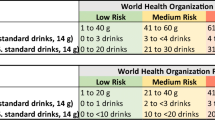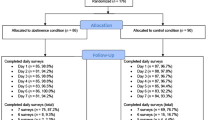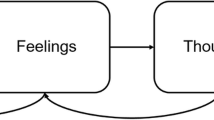Abstract
Rationale
Current research on factors that predict smoking lapse behavior is limited in its ability to fully characterize the critical moments leading up to decisions to smoke.
Objectives
We used a validated and widely used experimental analogue for smoking lapse to assess how moment-to-moment dynamics of craving relate to decisions to smoke.
Methods
Heavy smokers (N = 128, M age = 35.9) participated in a 50-min laboratory delay to smoking task on 2 consecutive days, earning money for each 5 min they remained abstinent or ending the task by choosing to smoke. Participants rated craving and negative affect levels immediately prior to each choice. Participants were randomized to smoking as usual (n = 50) or overnight abstinence (n = 50 successfully abstained, n = 22 failed abstaining) prior to session 2. Discrete-time hazard models were used to examine craving and negative affect as time-varying predictors of smoking.
Results
Higher craving levels prior to smoking opportunities predicted increased risk of smoking. When controlling for craving levels, incremental increases in craving predicted increased smoking risk. Increases in negative affect incrementally predicted increased smoking risk at session 2 only. Smokers who failed to abstain were at a higher risk of smoking than those who successfully abstained, whereas abstinent and non-abstinent smokers did not differ in smoking risk.
Conclusions
Findings demonstrate an extension of the smoking lapse paradigm that can be utilized to capture momentary changes in craving that predict smoking behavior. Evaluations of nuanced craving experiences may inform clinical and pharmacological research on preventing smoking lapse and relapse.

Similar content being viewed by others
Notes
The six participants missing from session 2 either did not return for the session (n = 5) or a computer malfunction resulted in missing data for session 2.
References
Aguirre CG, Madrid J, Leventhal AM (2015) Tobacco withdrawal symptoms mediate motivation to reinstate smoking during abstinence. J Abnorm Psychol 124:623–634 https://doi.org/10.1037/abn0000060
Alessi SM, Badger GJ, Higgins ST (2004) An experimental examination of the initial weeks of abstinence in cigarette smokers. Exp Clin Psychopharmacol 12:276–287. https://doi.org/10.1037/1064-1297.12.4.276
Baker TB, Piper ME, McCarthy DE, Majeskie MR, Fiore MC (2004) Addiction motivation reformulated: an affective processing model of negative reinforcement. Psychol Rev 111:33–51. https://doi.org/10.1037/0033-295X.111.1.33
Bolt DM, Piper ME, Theobald WE, Baker TB (2012) Why two smoking cessation agents work better than one: role of craving suppression. J Consult Clin Psychol 80:54–65 https://doi.org/10.1037/a0026366
Brandon TH, Tiffany ST, Obremski KM, Baker TB (1990) Postcessation cigarette use: the process of relapse. Addict Behav 15:105–114. https://doi.org/10.1016/0306-4603(90)90013-n
Carter BL, Tiffany ST (2001) The cue-availability procedure: the effects of cigarette availability on cue reactivity in smokers. Exp Clin Psychopharmacol 9:183–190. https://doi.org/10.1037/1064-1297.9.2.183
Curry S, Marlatt GA, Gordon JR (1987) Abstinence violation effect: validation of an attributional construct with smoking cessation. J Consult Clin Psychol 55:145–149. https://doi.org/10.1037/0022-006X.55.2.145
Day AM, Kahler CW, Spillane NS, Metrik J, Rohsenow DJ (2014) Length of smoking deprivation moderates the effects of alcohol administration on urge to smoke. Addict Behav 39:976–979. https://doi.org/10.1016/j.addbeh.2014.01.023
Diener E, Emmons RA (1984) The independence of positive and negative affect. J Pers Soc Psychol 47:1105–1117. https://doi.org/10.1037/0022-3514.47.5.1105
Drummond DC (2001) Theories of drug craving, ancient and modern. Addiction 96:33–46. https://doi.org/10.1080/09652140020016941
Fagerstrӧm KO, Heatherton TF, Kozlowski LT (1990) Nicotine addiction and its assessment. Ear Nose Throat J 69:763–765
Ferguson SG, Shiffman S (2009) The relevance and treatment of cue-induced cravings in tobacco dependence. J Subst Abus Treat 36:235–243. https://doi.org/10.1016/j.jsat.2008.06.005
Gass JC, Motschman CA, Tiffany ST (2014) The relationship between craving and tobacco use behavior in laboratory studies: a meta-analysis. Psychol Addict Behav 28:1162–1176. https://doi.org/10.1037/a0036879
Germeroth LJ, Tiffany ST (2017) Time to generate craving item ratings as an implicit measure of craving processes: a replication and expanded validation. Dissertation. University at Buffalo, State University of New York
Goedeker KC, Tiffany ST (2008) On the nature of nicotine addiction: a taxometric analysis. J Abnorm Psychol 117:896–909. https://doi.org/10.1037/a0013296
Gwaltney CJ, Metrik J, Kahler CW, Shiffman S (2009) Self-efficacy and smoking cessation: a meta-analysis. Psychol Addict Behav 23:56–66. https://doi.org/10.1037/a0013529
Heckman BW, MacQueen DA, Marquinez NS, MacKillop J, Bickel WK, Brandon TH (2017) Self-control depletion and nicotine deprivation as precipitants of smoking cessation failure: a human laboratory model. J Consult Clin Psychol 85:381–396. https://doi.org/10.1037/ccp0000197
Jacobs EA, Bickel WK (1999) Modeling drug consumption in the clinic via simulation procedures: demand for heroin and cigarettes in opioid-dependent outpatients. Exp Clin Psychopharmacol 7:412–426. https://doi.org/10.1037/10641297.7.4.412
Kahler CW, Metrik J, Spillane NS, Day A, Leventhal AM, McKee SA et al (2014) Acute effects of low and high dose alcohol on smoking lapse behavior in a laboratory analogue task. Psychopharmacology 231:4649–4657. https://doi.org/10.1007/s00213-014-3613-3
Marlatt GA (1985) Relapse prevention: theoretical rationale and overview of the model. In: Marlatt GA, Gordon JR (eds) Relapse prevention: maintenance strategies for addictive behaviors. Guilford Press, New York, pp 1–70
McCallion EA, Zvolensky MJ (2015) Acceptance and commitment therapy (ACT) for smoking cessation: a synthesis. Curr Opin Psychol 2:47–51. https://doi.org/10.1016/j.copsyc.2015.02.005
McKee SA (2009) Developing human laboratory models of smoking lapse behavior for medication screening. Addict Biol 14:99–107. https://doi.org/10.1111/j.1369-1600.2008.00135.x
McKee SA, Krishnan-Sarin S, Shi J, Mase T, O’Malley SS (2006) Modeling the effect of alcohol on smoking lapse behavior. Psychopharmacology 189:201–210. https://doi.org/10.1007/s00213-006-0551-8
McKee SA, Sinha R, Weinberger AH, Sofuoglu M, Harrison EL, Lavery M, Wanzer J (2011) Stress decreases the ability to resist smoking and potentiates smoking intensity and reward. J Psychopharmacol 25:490–502. https://doi.org/10.1177/0269881110376694
McKee SA, Weinberger AH, Shi J, Tetrault J, Coppola S (2012) Developing and validating a human laboratory model to screen medications for smoking cessation. Nicotine Tob Res 14:1362–1371. https://doi.org/10.1093/ntr/nts090
Moore TM, Seavey A, Ritter K, McNulty JK, Gordon KC, Stuart GL (2014) Ecological momentary assessment of the effects of craving and affect on risk for relapse during substance abuse treatment. Psychol Addict Behav 28:619–624. https://doi.org/10.1037/a0034127
Nicholls MER, Orr CA, Okubo M, Loftus A (2006) Satisfaction guaranteed: the effect of spatial biases on responses to Likert scales. Psychol Sci 17:1027–1028. https://doi.org/10.1111/j.1467-9280.2006.01822.x
Rhodes JD, Hawk LW (2016) Smoke and mirrors: the overnight abstinence paradigm as an index of disrupted cognitive function. Psychopharmacology 233:1395–1404. https://doi.org/10.1007/s00213-016-4227-8
Roche DJ, Bujarski S, Moallem NR, Guzman I, Shapiro JR, Ray LA (2014) Predictors of smoking lapse in a human laboratory paradigm. Psychopharmacology 231:2889–2897. https://doi.org/10.1007/s00213-014-3465-x
Sayette MA, Shiffman S, Tiffany ST, Niaura RS, Martin CS, Schadel WG (2000) The measurement of drug craving. Addiction 95:189–210
Serre F, Fatseas M, Swendsen J, Auriacombe M (2015) Ecological momentary assessment in the investigation of craving and substance use in daily life: a systematic review. Drug Alcohol Depend:148:1–148:14820. https://doi.org/10.1016/j.drugalcdep.2014.12.024
Shadel WG, Martino SC, Setodji C, Cervone D, Witkiewitz K, Beckjord EB, Scharf D, Shih R (2011) Lapse-induced surges in craving influence relapse in adult smokers: an experimental investigation. Health Psychol 30:588–596. https://doi.org/10.1037/a0023445
Shiffman S, Waters AJ (2004) Negative affect and smoking lapses: a prospective analysis. J Consult Clin Psychol 72:192–201. https://doi.org/10.1037/0022-006X.72.2.192
Shiffman S, Paty JA, Gnys M, Kassel JA, Hickcox M (1996) First lapses to smoking: within-subjects analysis of real-time reports. J Consult Clin Psychol 64:366–379. https://doi.org/10.1037//0022-006x.64.2.366
Shiffman S, Engberg JB, Paty JA, Perz WG, Gnys M, Kassel JD, Hickcox M (1997) A day at a time: predicting smoking lapse from daily urge. J Abnorm Psychol 106:104–116. https://doi.org/10.1037//0021-843x.106.1.104
Shiffman S, Kassel J, Gwaltney C, McChargue D (2005) Relapse for smoking prevention. In: Marlatt GA, Donovan DM (eds) Relapse prevention: maintenance strategies in the treatment of addictive behaviors. Guilford Press, New York, pp 92–129
Sobell LC, Sobell MB (1996) Timeline followback user’s guide: a calendar method for assessing alcohol and drug use. Addiction Research Foundation, Toronto
Stewart J, de Wit H, Eikelboom R (1984) Role of unconditioned and conditioned drug effects in the self-administration of opiates and stimulants. Psychol Rev 91:251–268
Tiffany ST (1990) A cognitive model of drug urges and drug-use behavior: role of automatic and nonautomatic processes. Psychol Rev 97:147–168. https://doi.org/10.1037/0033-295X.97.2.147
Tiffany ST, Wray JM (2012) The clinical significance of drug craving. Ann N Y Acad Sci 1248:1–17. https://doi.org/10.1111/j.1749-6632.2011.06298.x.
VanderVeen JW, Cohen LM, Watson NL (2013) Utilizing a multimodal assessment strategy to examine variations of impulsivity among young adults engaged in co-occurring smoking and binge drinking behaviors. Drug Alcohol Depend 127:150–155. https://doi.org/10.1016/j.drugalcdep.2012.06.026
Wikler A (1948) Recent progress in research on the neurophysiologic basis of morphine addiction. Am J Psychiatry 105:329–338
Witkiewitz K, Villarroel NA (2009) Dynamic association between negative affect and alcohol lapses following alcohol treatment. J Consult Clin Psychol 77:633–644. https://doi.org/10.1037/a0015647
Wray JM, Gass JC, Tiffany ST (2013) A systematic review of the relationships between craving and smoking cessation. Nicotine Tob Res 15:1167–1182. https://doi.org/10.1093/ntr/nts268
Zvolensky MJ, Farris SG, Guillot CR, Leventhal AM (2014) Anxiety sensitivity as an amplifier of subjective and behavioral tobacco abstinence effects. Drug Alcohol Depend 142:224–230. https://doi.org/10.1016/j.drugalcdep.2014.06.023
Acknowledgements
The authors would like to acknowledge Dr. Craig Colder for his assistance with data analyses reported in this manuscript.
Funding
This research was supported by the American Psychological Association (Dissertation Research Award), the Bugelski Fellowship (Department of Psychology, University at Buffalo, SUNY), and the Mark Diamond Research Fund (Graduate Student Association, University at Buffalo, SUNY) awarded to co-author LJG.
Author information
Authors and Affiliations
Corresponding author
Ethics declarations
Conflict of interest
Courtney A. Motschman, Lisa G. Germeroth, and Stephen T. Tiffany declare that they have no conflicts of interest. This research was approved by the Institutional Review Board (IRB) at the University at Buffalo, State University of New York. All participants provided written informed consent prior to their participation.
Rights and permissions
About this article
Cite this article
Motschman, C.A., Germeroth, L.J. & Tiffany, S.T. Momentary changes in craving predict smoking lapse behavior: a laboratory study. Psychopharmacology 235, 2001–2012 (2018). https://doi.org/10.1007/s00213-018-4898-4
Received:
Accepted:
Published:
Issue Date:
DOI: https://doi.org/10.1007/s00213-018-4898-4




